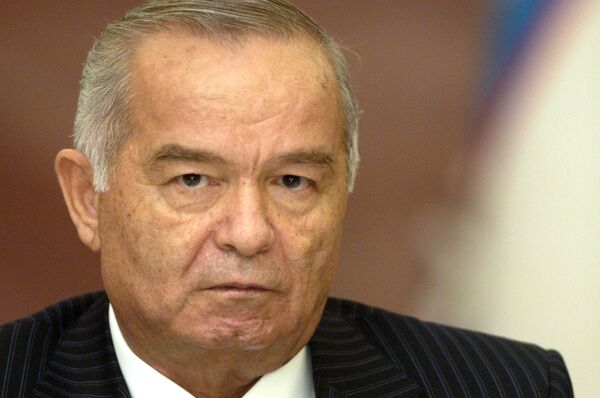Uzbek President Islam Karimov on Tuesday urged the Russian media not to judge all of Central Asia on the basis of the situation in Kyrgyzstan and asked reporters to be balanced in their coverage of the Kyrgyz unrest.
"Some of the assessments given by people considered good reporters are astonishing, as it is not correct to judge the whole region unambiguously by Kyrgyzstan," Karimov said at a news conference after talks in Moscow with President Dmitry Medvedev.
Karimov, at the end of a two-day official visit to the Russian capital, said the lack of information sometimes made journalists "fill the spaces by themselves." He denounced media reports suggesting the situation in Kyrgyzstan could be repeated in any other Central Asian state.
Medvedev himself suggested last week that events in Kyrgyzstan could be repeated in other former Soviet republics if their leaders followed policies similar to those of ousted Kyrgyz President Kurmanbek Bakiyev.
"In relation to the possibility of similar scenarios in ex-Soviet states or other countries - everything is possible in this world, if people are not happy with the authorities, if the authorities do not make efforts to support their people," Medvedev said at a news conference after the BRIC summit in Brazil.
The opposition took power in Kyrgyzstan two weeks ago amid large-scale anti-government demonstrations that saw more than 80 people killed in clashes with police. Bakiyev fled to Kazakhstan and then to Belarus, where President Alexander Lukashenko vowed he would be protected.
Karimov said the Central Asian states were alarmed by the situation in Kyrgyzstan.
"There is a serious threat of these processes becoming permanent," he said. "It would be very good if a competent, comprehensive analysis of what has happened in Kyrgyzstan, as well as in the whole region, was provided by the Russian press and television."
The Uzbek president quoted some media reports as saying "the leaders of the neighboring counties have been following the activities of the freedom-loving Kyrgyz people with horror, while residents [have been following it] with delight." Such reports, he said, were incorrect.
"Nobody follows the activities of the freedom-loving Kyrgyz people with delight," he said, and invited those journalists who did not believed him to visit the region and study the situation for themselves.
Western experts and politicians have for a long time accused Uzbekistan of human rights violations, including torture and political repression. Dissidents and independent journalists face serious problems in their activities when working in Uzbekistan.
Independent international observers have never supervised elections in the country, where there are effectively no opposition parties.
UN Secretary General Ban Ki-moon said during his official visit to Tashkent in early April that Uzbekistan had made "significant" progress in human rights by abolishing the death penalty and signing more than 60 international human rights agreements.
He added, however, that the agreements need to be implemented in the country.
MOSCOW, April 20 (RIA Novosti)


